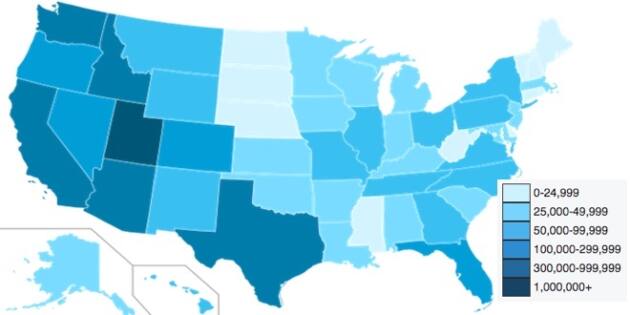Members of the Church of Jesus Christ of Latter-day Saints (Mormons) used to be one of the most reliable blocs of Republican voters in the nation.
As previous church leader Ezra Taft Benson controversially stated in 1974, a good Mormon could not be a Democrat. Although Benson was privately rebuked for it by church leader Spencer W. Kimball, many older U.S. Mormons still seem to assume that “GOP” stands for “God’s Own Party.”
Attitudes are starting to change, as Religion News Service reported. Earlier this month, the LDS issued an unprecedented statement about the dangers of voting a straight-party ticket. “Merely voting a straight ticket or voting based on ‘tradition’ without careful study of candidates and their positions on important issues is a threat to democracy and inconsistent with revealed standards,” the First Presidency wrote to members in the United States.
The reality is that Mormons in America, who number 6.6 million, have become less Republican over time. However, it’s less of a blue wave than it is a blue ripple. Drawing from Cooperative Election Study national data from 2008 to 2022, sociologist Ryan Burge created a graph of Mormon partisan affiliation in recent decades. There is a range of Republican affiliation, from the high-water mark of 75 percent GOP affiliation in 2012 to the lowest point, which was 53 percent in both 2017 and 2021
The biggest losses for LDS Republicans have come among the younger generations.
The main takeaway is that there have been modest GOP losses of about 7 points overall. However, this hasn’t been a slam-dunk for the Democratic Party. Democrats appear to have gained only 3 points, while independents gained 4.
“It will be interesting to see whether the church’s statement against straight-party voting does anything to soften older Saints’ apparent sense that to be a faithful Mormon means to fully align with the Republican Party,” the story concluded. “The last several years have brought us an abundance of social science research indicating that many Americans’ political identities have become more powerful to them than even their religious identities. But among younger U.S. church members, the GOP’s lock seems to already be weakening.”
–Alan Goforth | Metro Voice
